-
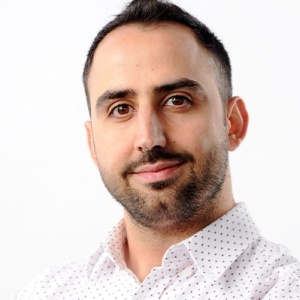
Aziz Abu-Saleh
University of Windsor, Canada -
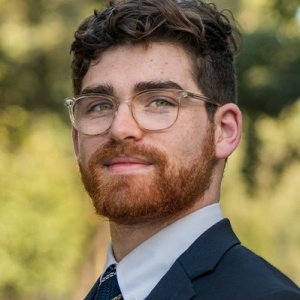
Noah Bartfield
Yale University, United States -
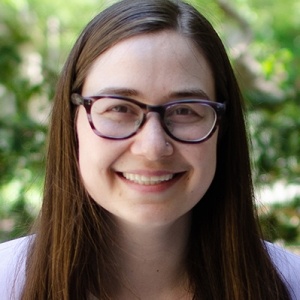
Michelle Brann
Harvard & Smithsonian Center for Astrophysics, United States -
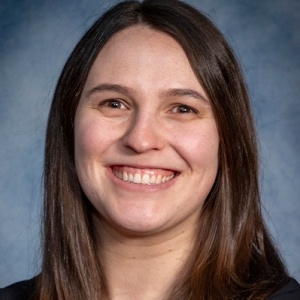
Rosemary L. Calabro
US Army DEVCOM Armaments Center and United States Military Academy, United States -
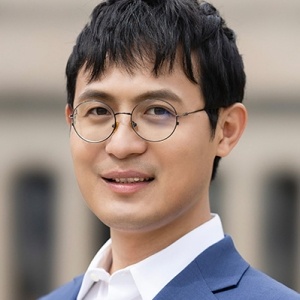
Xiangkun (Elvis) Cao
Massachusetts Institute of Technology, United States -

Áine Coogan
Trinity College Dublin, Ireland -
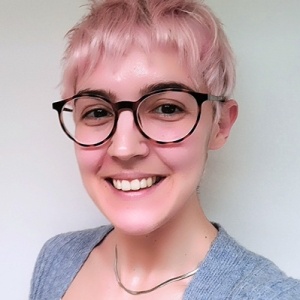
Chiara Deriu
Politecnico di Torino, Italy -
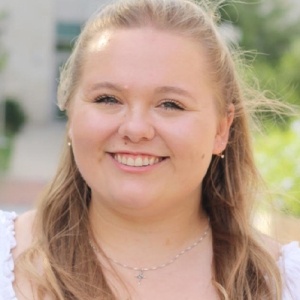
Madison Elaine Edwards
Texas A&M University, United States -
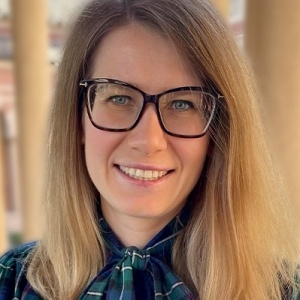
Olga Eremina
University of Southern California, United States -
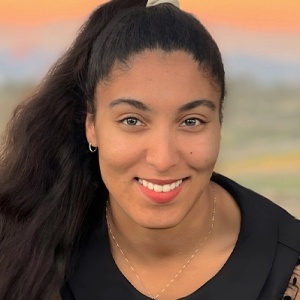
Inès Forrest
Scripps Research Institute, United States -
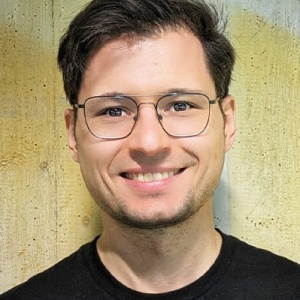
Patrick W. Fritz
University of Fribourg, Switzerland -
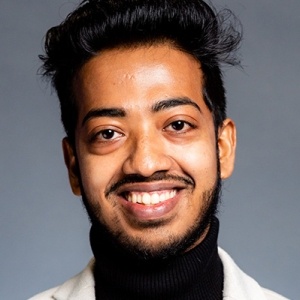
Nabojit Kar
Indiana University Bloomington, United States -
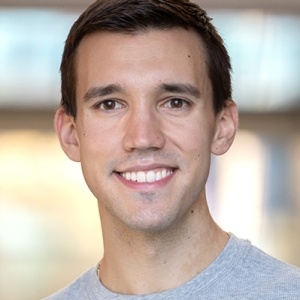
Stavros Kariofillis
Columbia University, United States -
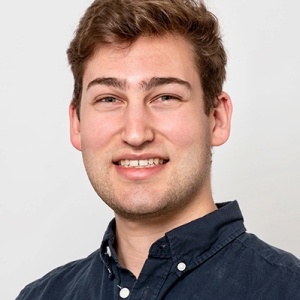
Joshua Kofsky
Queen's University, Canada -
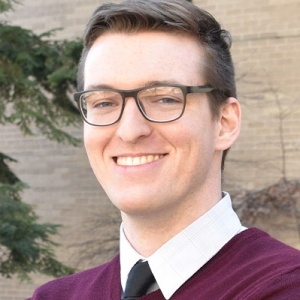
Eric Kohn
University of Wisconsin-Madison, United States -
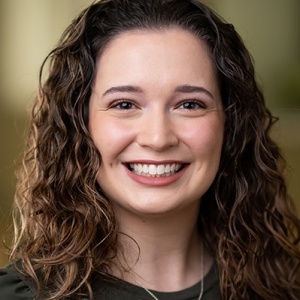
Danielle Maxwell
University of Detroit Mercy, United States -
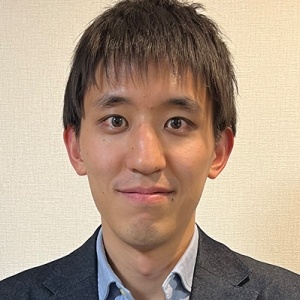
Keita Mori
Tokyo University of Agriculture and Technology, Japan -
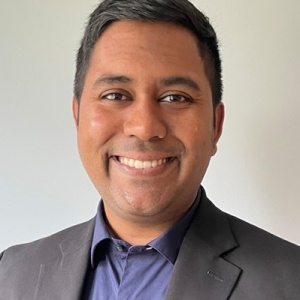
Aditya Nandy
University of Chicago, United States -
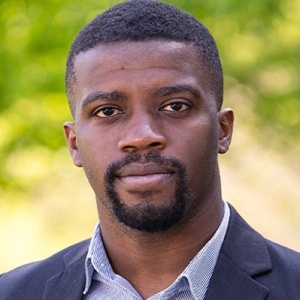
Akachukwu Obi
Massachusetts Institute of Technology, United States -
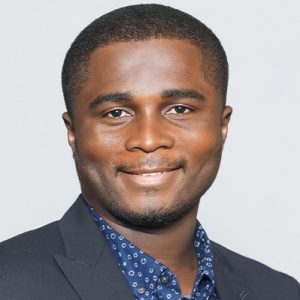
Ernest Opoku
Auburn University, United States -
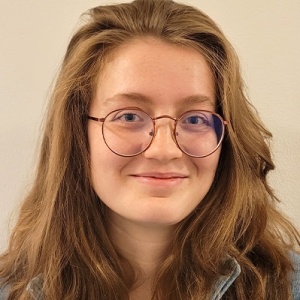
Daisy Pooler
KTH Royal Institute of Technology, Sweden -

Pragti
Indian Institute of Technology Indore, India -
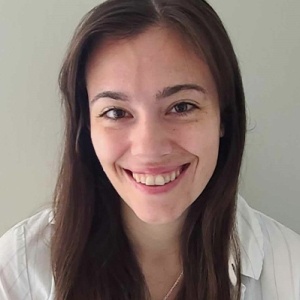
Stephanie Schneider
McMaster University, Canada -
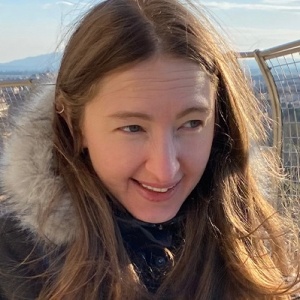
Ekaterina Selivanovitch
Cornell University, United States -
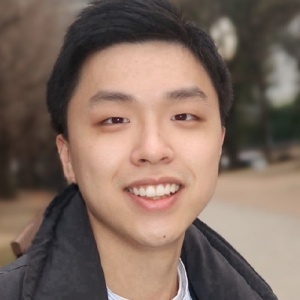
Hanchen Shen
Hong Kong University of Science and Technology, China -
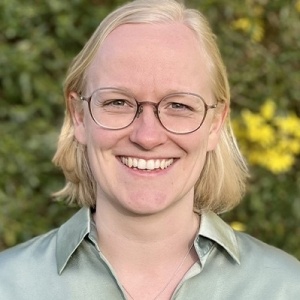
Lilian Sophie Szych
Freie Universität Berlin, Germany -
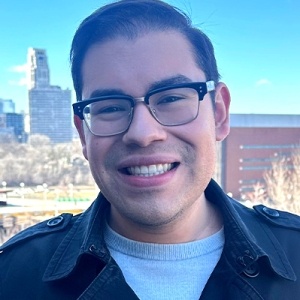
Alexander Umanzor
University of Minnesota, Twin Cities, United States -
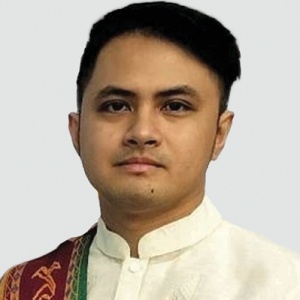
Ken Aldren Usman
Institute for Frontier Materials, Deakin University - Waurn Ponds, Australia -
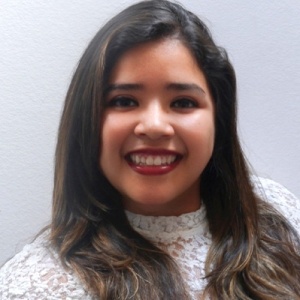
Sara T. R. Velasquez
University of Twente, Netherlands -
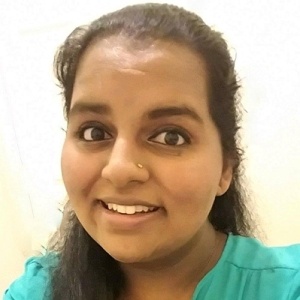
Gayatri Viswanathan
Iowa State University, United States -
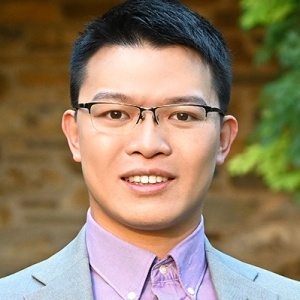
Kunyu Wang
University of Pennsylvania, United States -
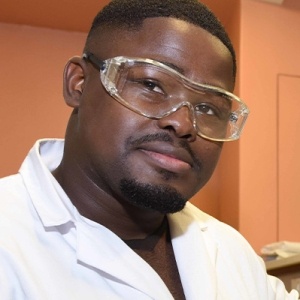
Athi Welsh
University of Cape Town, South Africa -
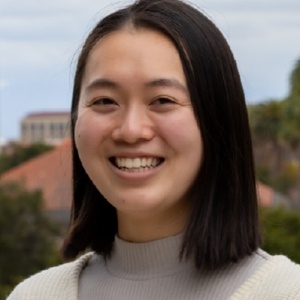
Kyra Yap
Stanford University, United States -
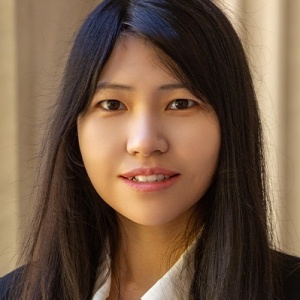
Yirui Zhang
Stanford University, United States -
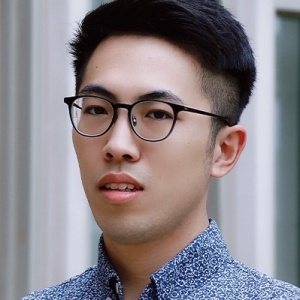
Junyi Zhao
Washington University in St. Louis, United States
Aziz Abu-Saleh
Aziz obtained his B.Sc. and M.Sc. degrees from Jordan before pursuing his Ph.D. at Memorial University in Canada. As a curious chemist, he is interested in leveraging computational and theoretical tools for drug design and development. As a postdoctoral fellow at the University of Windsor, his research focuses on GPCR proteins, particularly serotonin receptors, alongside other promising targets for cancer and COVID-19 treatments. Additionally, he specializes in big data preprocessing and machine learning for various drug discovery projects. With over 16 research articles and co-authorship of three patent applications, Aziz is dedicated to advancing pharmaceutical science and fostering innovation.
Noah Bartfield
Noah is from Orlando, Florida, and graduated from Florida State University as a Presidential Scholar and an Outstanding Senior Scholar with Dual Honors. As an undergraduate, he worked with Prof. James Frederich on hydromethylation of unactivated olefins and Prof. Mia Huang at Scripps Research on the chemical editing of proteoglycan architecture. He is currently a Ph.D. candidate and NSF Graduate Research Fellow with Prof. Seth Herzon at Yale University, where his work consists of the completed total synthesis of eight bioactive securamine and securine alkaloids spanning three skeletal motifs, access to related haloimidazole natural products, and downstream biological target identification.
Michelle Brann
Michelle is a postdoctoral fellow in Professor Karin Öberg’s group at the Harvard & Smithsonian Center for Astrophysics. She conducts laboratory experiments to understand abundances of complex organic molecules in interstellar ice analogs during planet formation. Previously, she was an NRC postdoc at the National Institutes of Standards and Technology (NIST) and measured superconducting nanowire single photon detectors. Michelle earned her Ph.D. in physical chemistry in 2022 from the University of Chicago and her B.A. in chemistry with honors from Wellesley College in 2015. Between undergraduate and graduate school, she spent one year at Pacific Northwest National Laboratory.
Rosemary L. Calabro
Rosemary is an NRC Postdoctoral Fellow with the U.S. Army DEVCOM-Armaments Center and Department of Chemistry and Life Science at the United States Military Academy. She received her Ph.D. in chemistry from the University of Kentucky and her B.S. in chemistry from Indiana University. Her research focuses on understanding the structure-function relationship of nanomaterials spanning many areas, including magnetic nanoparticles, graphene quantum dots, upconverting nanoparticles, plasmonic nanoparticles, and transition metal aerogels. She has applied unique techniques, including laser ablation in liquid and magnetic-field assisted synthesis to synthesize those nanomaterials. Rosemary has a passion for mentoring students, especially at the undergraduate level.
Xiangkun (Elvis) Cao
Elvis is a lifelong Schmidt Science Fellow, selected by Schmidt Futures in partnership with the Rhodes Trust, pursuing his independent research of integrated carbon capture and utilization at MIT. During his Ph.D. study at Cornell University, he landed on Forbes 30 Under 30 for North America. Dr. Cao has been named an Activate Fellow, an MIT Climate & Sustainability Consortium Impact Fellow, a Carbon Removal Justice Fellow, and a German Chancellor Fellow by the Humboldt Foundation. Besides research, Elvis was inducted into the Edward Bouchet Honor Society for his effort in promoting diversity, equity, and inclusion.
Áine Coogan
Áine, who hails from the small village of Dunderry, County Meath, Ireland, earned her B.A. in nanoscience, physics, and chemistry of advanced materials from Trinity College Dublin (TCD) in 2019. In March 2024, she completed her Ph.D. in materials chemistry at TCD under the guidance of Prof. Yurii K. Gun’ko and is now a postdoctoral researcher in the same group. Her research focuses on sustainable synthetic approaches for 2D nanomaterials, particularly layered double hydroxides, and their diverse applications, including in chiral self-assembly, photocatalysis, and luminescent sensing. Beyond the lab, Áine is deeply committed to scientific outreach, education, and public engagement.
Chiara Deriu
Chiara obtained her Ph.D. in chemistry from Florida International University (FIU), Miami, USA, in 2020, where she worked on tailoring the stabilization of nanomaterials for the detection of drugs by SERS. She then received a postdoctoral appointment at FIU to work on the computational modeling of adsorbates on bimetallic clusters. Chiara joined Politecnico di Torino (Italy) in September 2021, where she is an ERC-funded postdoctoral researcher. Her scientific interests lie at the intersection of physical chemistry and the analytical sciences, with particular attention to nanoscale surface chemistry and its effects on both nanofabrication and SERS analytical performance.
Madison Elaine Edwards
Madison holds a B.S. in biochemistry and a B.A. in classical studies from Purdue University. Currently, she is pursuing her Ph.D. at Texas A&M University under the mentorship of Professor Xin Yan, where her research centers on enhancing reactivities at interfaces. She developed an interfacial microreactor to facilitate thin-film electromigration and accelerate surface reactions to enable small-volume biofluid mass spectrometric analyses. Furthermore, as part of the NSF Center for Single-Entity Nanochemistry and Nanocrystal Design, she leverages microdroplet reaction acceleration and develops a high-throughput mass spectrometry platform to examine the impact of nanoparticle heterogeneity on catalytic reactions.
Olga Eremina
Olga is an Agilent postdoctoral fellow with Prof. Cristina Zavaleta in the Department of Biomedical Engineering at the University of Southern California. After receiving an M.S. with honors in chemistry, Olga obtained a Ph.D. in analytical chemistry from Moscow State University. Her research focuses on nanoparticle-based contrast agents to achieve high targeting specificity and quantitative multiplexing capabilities for molecular imaging. Beyond research, Olga is an active junior leader at the Molecular Imaging in Nanotechnology and Theranostics (MINT) interest group and advocates for women in STEM through the Women in Molecular Imaging Network (WIMIN) at the World Molecular Imaging Society.
Inès Forrest
Inès completed her undergraduate studies in chemistry at the European School of Chemistry, Polymers and Materials (ECPM) in France (2017). She then earned her M.S. in chemical engineering from Sigma-Clermont, France (2020) and M.S. in chemistry/biochemistry from the University of Oklahoma (2020). She conducted research on bioactive natural products targeting oxysterol-binding proteins for the development of antiviral and anticancer therapeutics. Currently, a Ph.D. candidate and Ford Foundation fellow working with Prof. Christopher Parker at Scripps Research, her doctoral studies focus on the development of an innovative chemical proteomic methodology to expand the degradable proteome while identifying bifunctional degrader leads.
Patrick W. Fritz
Patrick obtained his BSc in technical chemistry from Technische Universität Wien (TU Wien) in 2018 and his M.Sc. in 2019 from the same university. In 2020, he joined the group of Prof. Ali Coskun at the University of Fribourg (Switzerland), where he works on porous organic polymers and framework materials for separation, capture, and energy applications. He is active in national and international young chemists’ networks where he supports the organization and dissemination of events directed at young chemists.
Nabojit Kar
Nabojit earned his bachelor's and master’s dual degree from the Indian Institute of Science, Education and Research, Kolkata, India. During his undergraduate studies, he pursued a research internship at the University of Ottawa in Canada. Currently, Nabojit is pursuing a Ph.D. in chemistry under the supervision of Prof. Sara Skrabalak. His research focuses on polyelemental nanoparticles and nanomaterials using nanoparticle conversion chemistry for applications in sustainable energy.
Stavros Kariofillis
Stavros obtained his B.S. in biochemistry from Lafayette College. As an undergraduate student, he conducted research in organometallic chemistry with Professor Roxy Swails, as well as with Professor Melanie Sanford at the University of Michigan. Stavros received a Ph.D. in chemistry with Professor Abigail Doyle from Princeton University as an NSF graduate research fellow, where his research focused on methodology development in nickel/photoredox catalysis. As part of his graduate studies, Stavros was also a visiting graduate researcher at UCLA. In 2022, he joined the laboratory of Professor Tomislav Rovis at Columbia University as an NIH F32 postdoctoral fellow. Here, he is applying photocatalysis to address challenges in chemical biology.
Joshua Kofsky
Josh is a carbohydrate chemist and glycobiologist exploring the sweet world of glycans, the sugar structures coating cells that play important roles in health and disease. He is a Vanier Scholar and Ph.D. candidate with Dr. Chantelle Capicciotti at Queen’s University (Canada), where he completed his B.Sc. in chemistry (2020). His research focuses on the chemoenzymatic synthesis of complex glycans and developing chemical biology tools to study how these biomolecules impact cellular functions and cell-to-cell communication.
Eric Kohn
Eric is a Ph.D. candidate and founding member of Jeff Martell’s lab at the University of Wisconsin-Madison. His research focuses on new methods of modifying, discovering, and using DNA-based receptors known as aptamers and has been supported by the NSF-GRFP. As an undergraduate at Rowan University, he studied peptide biophysics in the Caputo lab, at Longevity Biotech (Philadelphia, PA), and through an NSF-REU at Syracuse University. Eric has used his positions in the ACS’s Division of Biological Chemistry and R&D Council of New Jersey to advocate for mentoring in STEM. Outside the lab, he loves to learn about food, flags, and foraging.
Danielle Maxwell
Danielle (she/ella) is an Assistant Professor of chemistry and biochemistry at the University of Detroit Mercy. She earned a chemistry Ph.D. and M.S. in educational studies from the University of Michigan under the mentorship of Profs. Ginger Shultz and Paulette Vincent-Ruz. Danielle also earned a B.S. in chemistry and a minor in leadership from the University of Detroit Mercy, where she conducted analytical chemistry research with Prof. Kendra Evans. As an equity-centered chemistry education researcher, Danielle’s research interests focus on the science identity development of racially minoritized undergraduate students and making chemistry more culturally relevant.
Keita Mori
Keita received his B.Sc. (2018), M.Sc. (2020), and Ph.D. (2023) in chemistry from the Graduate School of Science, The University of Tokyo under the supervision of Prof. Mitsuhiko Shionoya. His Ph.D. study demonstrated metal-responsive operation of DNA nanodevices using artificial nucleic acids. He also worked on dynamic control of DNA nanostructures with Prof. Hanadi Sleiman (McGill University) as a visiting researcher in 2022. He is currently a JSPS postdoctoral fellow in Prof. Takahiro Muraoka's group (Tokyo University of Agriculture and Technology). His current research interests focus on supramolecular chemistry for synthetic reconstruction of natural protein dynamics and functions.
Aditya Nandy
Aditya is a Schmidt AI in Science Postdoctoral Fellow at the University of Chicago, working jointly with Profs. Benoit Roux, Eduardo Perozo, and Suriyanarayanan Vaikuntanathan. He received his Ph.D. in theoretical chemistry from the Massachusetts Institute of Technology (MIT), where he was an NSF Graduate Research Fellow and worked with Prof. Heather J. Kulik. Prior to MIT, Aditya received his B.S. in chemical and biomolecular engineering at the University of California, Berkeley, where he worked with Prof. Jeffrey A. Reimer. In 2025, Aditya will start his group at UCLA, in the Chemical and Biomolecular Engineering department.
Akachukwu Obi
Akachukwu (AC) is a postdoctoral impact fellow under the supervision of Prof. Elsa Olivetti at the MIT Climate and Sustainability Consortium, where he coordinates academia-industry collaborations for accelerating the innovation and deployment of carbon capture technologies. He obtained a Ph.D. (2022) from the University of Virginia under Prof Robert J. Gilliard Jr., investigating electrophilic main group species based on magnesium, calcium, and bismuth for energy-relevant small molecule activation and catalysis. He also holds an M.S.Ed. (2017) from the University of Pennsylvania and B.S. (2015) from Bates College.
Ernest Opoku
Ernest, a Ph.D. candidate in the quantum chemistry group of Professor J.V. Ortiz at Auburn University, develops and applies new-generation electron-propagator methods for computing electron binding energies and Dyson orbitals. He obtained B.Sc. (Honors) and M.Phil. chemistry degrees from Kwame Nkrumah University of Science and Technology, Ghana, advised by Professor Richard Tia. In 2019, he founded the Nesvard Institute of Molecular Sciences, which offers mentorship and fosters collaborations to strengthen the scientific capabilities of diverse Africans, with the goal of cultivating globally competitive talents. He advocates for equity in scientific research and education, leadership, and science policy.
Daisy Pooler
Daisy received her MChem degree from the University of Manchester, UK in 2018, studying molecular machines under the supervision of Prof. David Leigh. She then joined the group of Prof. Ben L. Feringa at the University of Groningen, the Netherlands, as a Ph.D. student investigating heterocyclic light-driven rotary molecular motors. After attaining her Ph.D. in 2023, she moved to Stockholm, Sweden joining the group of Dr. Fredrik Schaufelberger at KTH Royal Institute of Technology as a Marie Skłodowska-Curie postdoctoral fellow working on biocompatible molecular machines. Her research interests include artificial molecular motors and machines, photochemistry, supramolecular biochemistry, and computational chemistry.
Pragti
Pragti is currently investigating the anticancer and cellular imaging properties of photoluminescent molecules at the Indian Institute of Technology Indore, India. In brief, her research addresses the challenges in cancer biology, drug delivery, and biocatalysis. Prior to this, she earned her M.Sc. degree in chemistry from CSJM University, Kanpur, and was awarded the Gold Medal. Moreover, she has received numerous awards, including UGC-NET JRF, GATE, International Joint Bilateral Indo-Bulgaria Exchange Visit Program, best poster award at the 31st CRSI-NSC & ACS Symposium, 2023. She also received a travel grant from DST-SERB, Gov. of India, for presenting at ACS Fall 2023.
Stephanie Schneider
Stephanie earned her B.Sc. in chemistry at the University of Alberta, followed by her Ph.D. in environmental chemistry at the University of Toronto. Her doctoral research focused on studying the multiphase reactions within the top few microns of the ocean which ultimately emit volatile compounds into the atmosphere. Currently, she is an NSERC postdoctoral fellow at McMaster University. As a postdoc, her research is focused on understanding the impacts of wildfires on local air quality. Specifically, she is interested in how short-term air quality events can impact the composition of urban surfaces in the long term.
Ekaterina Selivanovitch
Ekaterina is currently a postdoctoral researcher with Professor Susan Daniel at Cornell University, developing cell-free synthesis methods for the design of targetable virus-like liposomes, for which she has been awarded the Kirschstein-NRSA fellowship. Ekaterina earned her B.S. in chemistry from St. Francis College, where she conducted both chemical and biological research under Professors Robin Helburn and Katherine Nolan. She then pursued an M.S. in chemistry from St. John's University, focusing on DNA origami virus sensors with Professor Philip Lukeman. Her Ph.D. in chemistry was completed at Indiana University, under the guidance of Professor Trevor Douglas, developing virus-like particle-based catalytic systems.
Hanchen Shen
Hanchen is a Ph.D. candidate at The Hong Kong University of Science and Technology (HKUST) under the supervision of Prof. Ben Zhong Tang. He obtained his B.Sc. in pharmacy as the Shanghai Outstanding Graduate from Fudan University in 2020. He also worked with Prof. Sihong Wang at the University of Chicago as a visiting student for 3 months in 2019. After graduation, he was awarded the Hong Kong Ph.D. Fellowship Scheme and began his research at HKUST. His research interest mainly focuses on developing functional fluorescent materials with the aggregation-induced emission (AIE) property for bioimaging, biodetection, and phototherapy.
Lilian Sophie Szych
Lilian received her B.Sc. (2016), M.Sc. (2018), and Ph.D. (2022) from the University of Rostock, Germany, supervised by Prof. Axel Schulz. She then moved to the University of Oxford for a postdoc with Prof. Jose Goicoechea, funded by a Leopoldina fellowship. After that, she joined the group of Prof. Christian Müller at the Freie Universität in Berlin, Germany. Her research in the field of inorganic chemistry focuses on the use of reactive pnictogen species for small molecule activation. Outside of the lab, Lilian enjoys STEM outreach, sports, traveling, and cooking.
Alexander Umanzor
Alex is a Salvadoran American organometallic chemist. He earned his B.S. in chemistry at UCLA, where he conducted undergraduate research in the groups of Prof. Alex Spokoyny and Ken Houk. He is a Ph.D. candidate and NSF graduate research fellow at the University of Minnesota, Twin Cities, where he works with Prof. Courtney Roberts on late transition metal aryne chemistry. He uses a combined experimental and computational approach towards 1) enabling the regioselective difunctionalization of nickel aryne complexes via ligand control, and 2) elucidating the electronic structure of these complexes to answer questions regarding bonding, selectivity, and reactivity.
Ken Aldren Usman
Ken got his Ph.D. in engineering (materials) from the Institute for Frontier Materials, Deakin University (Australia) in 2023. He acquired both his B.Sc. and M.Sc. in chemistry from the Institute of Chemistry, University of the Philippines – Diliman in 2013 and 2018, respectively. Ken pursues deep understanding of the fundamentals behind processing nanomaterials of varying scales (0D to 3D) into functional architectures. Notably, his work on sequentially bridged MXene architectures helped him establish his niche in the Future Fibres Group at Deakin and forged collaborations with MXene pioneers, Profs Yury Gogotsi (Drexel University) and Babak Anasori (Purdue University).
Sara T. R. Velasquez
Sara is a postdoctoral researcher at the University of Twente, working at the interface between chemistry, biology, materials science, and engineering to solve societal problems. Her current research focuses on developing sustainable polymers to protect plants as an alternative to toxic pesticides, including developing lignin-based materials to improve biodegradability and exploring novel applications. She completed her Ph.D. in pure and applied chemistry at Strathclyde University, following an M.Sc. in materials science from ETH Zurich, and B.Sc. in materials engineering from the Federal University of Santa Catarina. Sara is passionate about public engagement, particularly encouraging women and under-represented groups into STEM.
Gayatri Viswanathan
Gayatri is a solid-state inorganic chemist working on designing new materials for clean energy conversion and generation. She received her B.S. in chemistry from the University of Houston in 2017 and is currently a Ph.D. candidate at Iowa State University. Gayatri’s graduate research focuses on expanding the library of known tetrel pnictide materials using computational and experimental methods. She enjoys using advanced characterization techniques, such as in situ X-ray diffraction, to study promising materials and collaborating with scientists around the world to solve problems. She is passionate about supporting the advancement of future scientists and leaders from underrepresented groups.
Kunyu Wang
Kunyu is a Vagelos Institute Postdoctoral Fellow at University of Pennsylvania, working with Prof. Christopher Murray and Prof. Shu Yang. He is interested in exploring bottom-up self-assembly of porous superlattices and their behaviors at interfaces for water harvesting and carbon capture. He earned a Ph.D. in chemistry from Texas A&M University, under the supervision of Prof. Hong-Cai Zhou. His graduate works focused on the construction of hierarchically porous metal-organic frameworks for efficient separation and recognition.
Athi Welsh
Athi’s research interest is in the use of multinuclear metal-based molecules as chemotherapeutic agents. This metal-based approach provides a novel, lesser-explored route to eradicating cancer and potentially provides a new mode of action, a nascent field of research, targeting diseases not only endemic to sub-Saharan Africa but also globally. Athi completed his tertiary studies at the University of Cape Town (UCT), graduating with a B.Sc. in chemistry and molecular cell biology in 2016 and a B.Sc. Honours in chemistry in 2017 and M.Sc. in chemistry in 2019. Currently, his Ph.D. is under examination at the University of Cape Town.
Kyra Yap
Kyra is a Ph.D. candidate in chemical engineering at Stanford University. Her research focuses on electrochemical solar fuels, with a focus on understanding the diurnal effects of irradiation and environmental conditions on the performance of electrochemical solar-driven CO2 reduction reactors. She also studies solar-driven systems for the conversion of CO2 into C4+ products utilizing tandem solar-driven electrochemical and photothermal processes. Prior to attending Stanford, Kyra completed her undergraduate degree at Rutgers University, NJ, in chemical engineering. She was born and raised in Brisbane, Australia.
Yirui Zhang
Yirui (Arlene) is currently a Schmidt Science Fellow at Stanford University. She received her Ph.D. from Massachusetts Institute of Technology and B.S. from Tsinghua University, China. Her research focuses on understanding the materials interfaces in electrochemical energy storage and biosensing. She develops advanced characterization with in situ vibrational spectroscopy and electrochemical methods to elucidate and tailor the interfacial reactions, charge transfer across interface, and electrokinetic transport at the molecular scale.
Junyi Zhao
Junyi is a Ph.D. candidate in electrical engineering at Washington University in St. Louis (WashU), under the guidance of Prof. Chuan Wang. Concurrently, he serves as a research scientist intern at Meta Reality Labs (formerly Facebook), focusing on developing the next-generation intelligent wearables. Junyi's research is dedicated to advancing the frontier of chemistry-guided material design, synthesis, and modifications tailored for various soft electronics applications, aligning with his vision of constructing human-centered electronic systems. His interdisciplinary work spans flexible/stretchable optoelectronics, wearable electronics, biomedical devices, and human-machine interfaces. Beyond the lab, he is passionate about entrepreneurship, technology commercialization, and STEM outreach.
